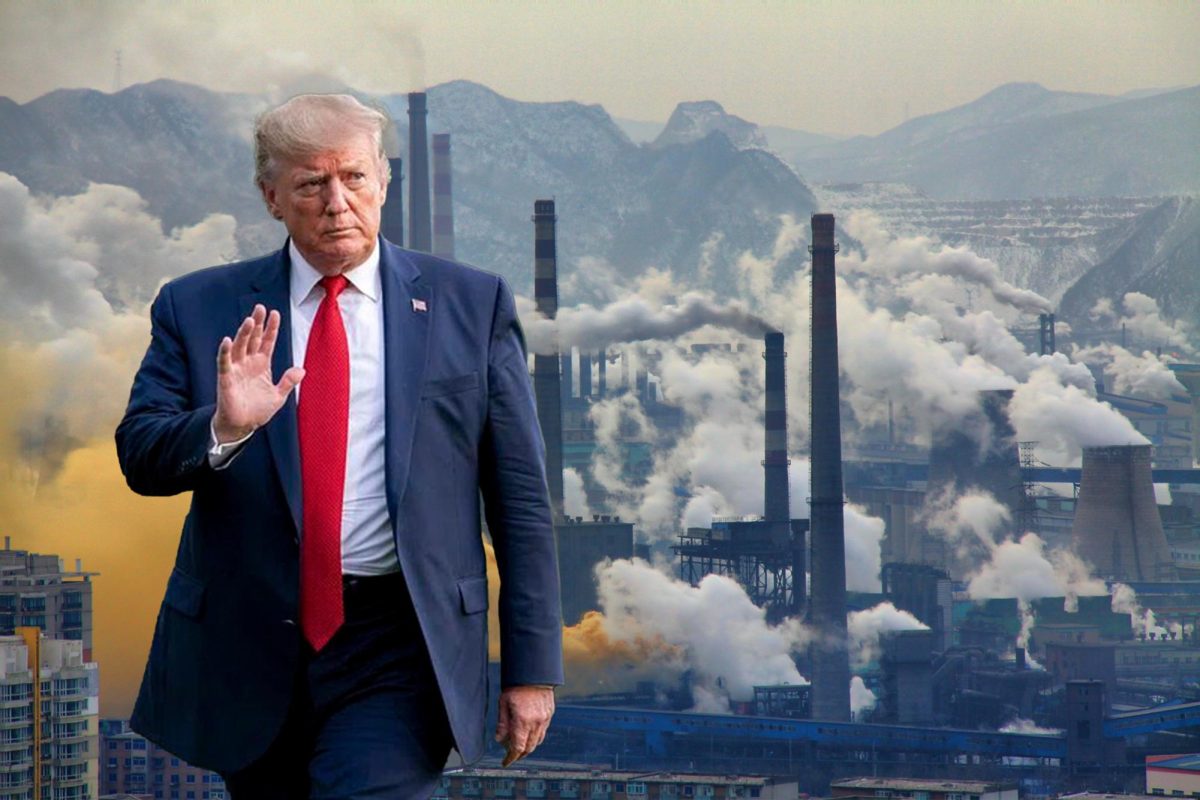Members of the Fordham community expressed concern that another Trump term would intensify the climate crisis.
President-elect Donald Trump appoints Chris Wright, CEO of a fracking firm Liberty Energy, as secretary of energy on Saturday. Trump’s cabinet picks represent a profit-seeking agenda, pointing to a future with vast climate policy ramifications.
“There is no ‘climate crisis.’ The only thing resembling a crisis with respect to climate change is the regressive, opportunity-squelching policies justified in the name of climate change,” Wright said in a video posted on LinkedIn last year.
His skepticism towards man-made climate change brings forth questions about the future of the United States’ energy sources.
“The coordination, infrastructure, and funding for the aftermath of those crises is going to be a lot weaker.” Anna Levy, adjunct professor of environmental justice
Fordham professors weighed in on possible outcomes and gave advice to students. Marc Conte, an economics professor, said that most economies are in favor of renewable energy, making it more difficult for the Trump administration to switch back to fossil fuels in the future.
“First, markets now in many parts of our country, and many parts of the world favor renewable energy, meaning that it is cheaper to build new renewable-energy facilities in many parts of the world than facilities that depend on fossil fuels. For that reason, I don’t know the extent to which policies from the Trump Administration can stop the change that’s happening.” Conte said.
Anna Levy, an adjunct professor of environmental justice, summarized her predictions for the Trump administration’s policies towards the climate crisis.
With Trump’s second term approaching, President Biden’s Inflation Reduction Act (IRA), one of his administration’s largest policy achievements, comes under threat of repeal.
“The coordination, infrastructure, and funding for the aftermath of those crises is going to be a lot weaker,” Levy said.
Trump’s climate policies in his first term were criticized by environmental advocates. During his administration Trump prioritized fossil fuel production, repealed over 100 environment regulations and withdrew from the Paris Climate Agreement, a legally binding international treaty among 195 nations to cut their greenhouse gas emissions to limit global warming to 1.5°C. The United States re-joined the Paris Climate Agreement in February 2021 under President Joe Biden.
With Trump’s second term approaching, President Biden’s Inflation Reduction Act (IRA), one of his administration’s largest policy achievements, comes under threat of repeal. The IRA, signed into law in August 2022, aimed to invest in domestic energy production while promoting clean energy, among other objectives. The IRA permitted production subsidies and consumer subsidies in the field of electric vehicles (EVs). Conte said that production subsidies could be harder to repeal because they directed money to congressional districts.
“We’re going to see a resurgence in inequality within cities and states of who’s experiencing the brunt of rolled-back regulation in terms of water contamination and air pollution.” Anna Levy, adjunct professor of environmental justice
Trump promised to cure American ails by slowing inflation. Conte expressed how this emphasis on low prices may exasperate greenhouse gas emissions.
“People change their behavior in response to prices. So, we need to have a price on the emission of greenhouse gasses so that the costs of climate change influence our consumption decisions. Otherwise, I don’t believe that we will adequately address it,” Conte said.
Levy said that Trump’s promise to ameliorate economic troubles may not be felt for all Americans however considering environmental inequality.
“We’re going to see a resurgence in inequality within cities and states of who’s experiencing the brunt of rolled-back regulation in terms of water contamination and air pollution,” Levy said.
Levy also specified how public health will be the sector to suffer the most under Trump’s climate policies.
“Public health is going to be one of the things that is affected first and foremost,” Levy said. “I think we’re going to see a resurgence in the inequality within cities and states who are experiencing the brunt of rolled back regulation in terms of water contamination, air pollution, things like that.”
In light of politicians neglecting the severity of the climate crisis, some students said they feel hopeless for what is to come. Levy said that for students that feel disheartened by a lack of federal action, they should remember that action from state governments is important.
“Under repressive conditions, you see the most transformative and radically progressive policies at the local level,” Levy said.
Instead of succumbing to feelings of despair, Eun-Hee Kim, Chair of Strategy and Statistics at the Gabelli School of Business, encouraged students to stay passionate about environmental action.
“Students are enthusiastic about these issues, and as long as they keep their enthusiasm, this momentum will continue.” Kim said. “If you do, if you follow your passion… then you can make a difference.”
Despite the potential for a future that will contain a lack of federally-funded initiatives, all three professors pushed for students to stay engaged and to keep fighting. In periods of environmental uncertainty, young people need to step up and get involved at the local level.

